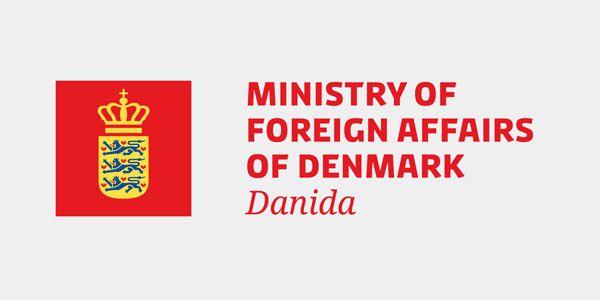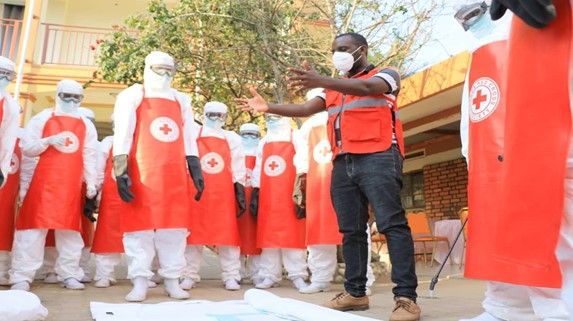The Issue
The West Nile subregion is a disaster-prone part of Uganda with epidemics, drought, floods, refugee influx and wildfire being the main hazards affecting the main target districts for the implementation of this project: Arua, Maid-Okollo, Terego, Lamwo, Yumbe, Koboko, Obongi, Adjumani, Zombo and Amuru.
As the change in frequency and intensity of weather hazards are brought on by climate change, such related disasters are likely to continue – and there is therefore a need to build community resilience to absorb future stresses and shocks.
The Project
The project aim is to increase capacity of first line responders, including district disaster management committees, to provide a more effective and coordinated anticipatory and early response to multi-hazard emergencies, thereby increasing resilience of refugee and host communities in West Nile subregion.
The Change
Firstly, the project has worked towards reinforcing institutional linkages through coordination, information sharing and advocacy on robust disaster management, particularly early warning-early action strategy and response.
This includes knowledge of the risks among the population, monitoring, analysis and forecast of hazards alongside communication and dissemination of alerts and warnings. As part of this, the consortium also coordinates with UNMA to support interpreting and downsizing of early warning information to communities, including development of information messages.
Secondly, the project has worked with district local government and key stakeholders to update and improve strategies, plans and mechanisms at district level to better anticipate risks and ensure sufficient preparedness and response capacities.
This includes supporting in integration and operationalization of forecast based actions into the District Contingency Plans as well as ensuring that all contingency plans are updated, endorsed, and operationalized, so that local responders are provided with the proper tools and can respond appropriately, based on the predefined and determined multi-hazard triggers.
The action has also improved coordination and institutional linkages through mapping consolidated data on local responders as well as identifying current operational challenges. This has enhanced coordination and information management capacities at district level.
Finally, the project includes a cost-effective crisis modifier to respond to emergencies which ensures the provision of an immediate and effective first response in the targeted districts. Responding to disaster under the crisis modifier is the collective decision of local first responders with the approval of district stakeholders and informed by accomplishment of clear thresholds for triggering emergency response.
Rapid assessments are conducted in 72 hours following an alert which leads to distribution of emergency cash, non-food items and communal WASH items for affected communities to cover their immediate needs.
About this project
Title: Enhanced Resilience Through an Effective Anticipatory and Early Response to Emergencies.
Project Period: August 2021 – March 2024
Partners (consortium):
- Uganda Red Cross Society (URCS)
- Lutheran World Foundation (LWF)
- Community Empowerment for Rural Development (CEFORD)
- Civil Society Budget Advocacy Group (CSBAG)
Donor: EU Humanitarian Aid (ECHO), Danida and other donors
Funding: 2,779,000 EUR (2,500,000 EUR from ECHO and 279,000 EURO from other donors)



